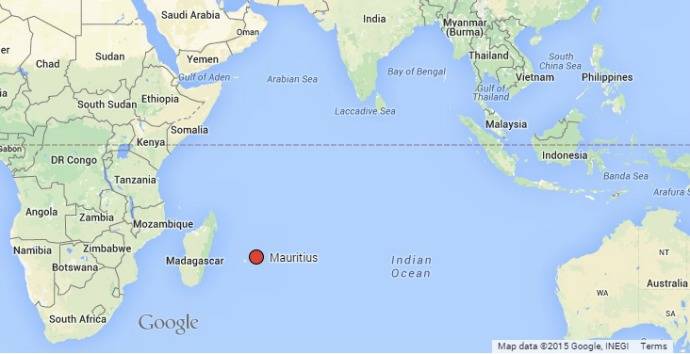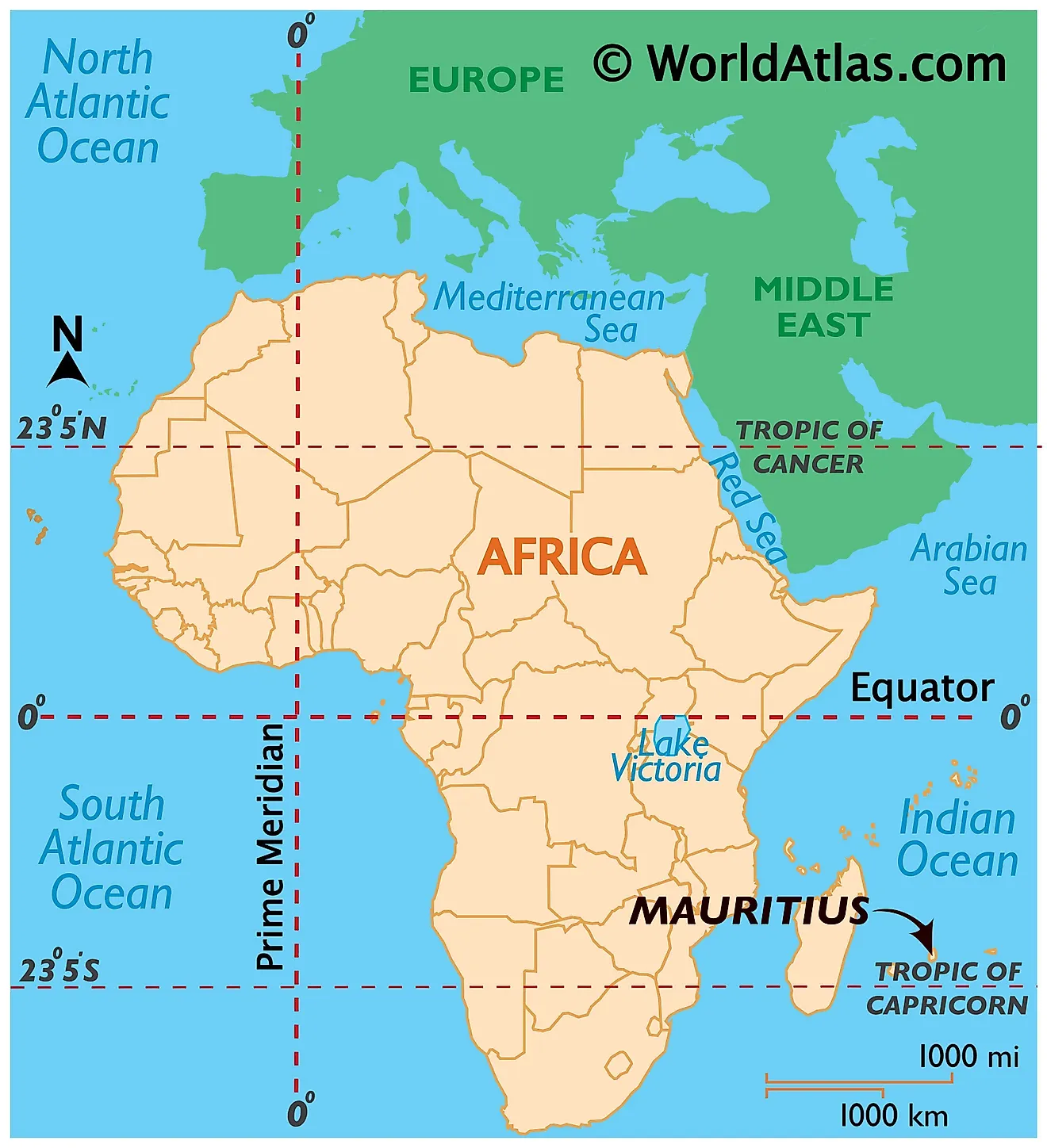Mauritius on the World Map: A Jewel in the Indian Ocean
Related Articles: Mauritius on the World Map: A Jewel in the Indian Ocean
Introduction
With enthusiasm, let’s navigate through the intriguing topic related to Mauritius on the World Map: A Jewel in the Indian Ocean. Let’s weave interesting information and offer fresh perspectives to the readers.
Table of Content
Mauritius on the World Map: A Jewel in the Indian Ocean

Mauritius, a vibrant island nation in the Indian Ocean, is often depicted as a tiny speck on global maps. Yet, this seemingly insignificant point holds immense significance, both for its unique history and its crucial role in the modern world. This article will explore the island’s position on the world map, highlighting its geographic context, historical influences, and contemporary relevance.
A Tiny Island, A Vast History:
Mauritius is situated approximately 2,000 kilometers east of mainland Africa, nestled amidst a cluster of islands known as the Mascarene Islands. This strategic location has been a defining factor in its history, making it a crossroads of cultures and a point of contention for various empires.
Geographical Context:
Mauritius occupies a mere 2,040 square kilometers, making it one of the smallest sovereign states in the world. The island’s volcanic origin is evident in its dramatic landscapes, featuring lush forests, cascading waterfalls, and pristine beaches. Its proximity to the equator bestows it with a tropical climate, characterized by warm temperatures and consistent rainfall.
Historical Significance:
The island’s history is a captivating tapestry woven from threads of discovery, colonization, and struggle. The Portuguese were the first Europeans to set foot on Mauritius in 1507, naming it "Ilha do Cerne" (Island of the Swan). However, it was the Dutch who established the first permanent settlement in 1598, calling it "Mauritius" after Prince Maurice of Nassau.
The Dutch period witnessed the introduction of sugarcane, which eventually became the island’s economic mainstay. The French took control of Mauritius in 1715, renaming it "Île de France" and transforming it into a major trading post. French influence is evident in the island’s architecture, cuisine, and language, with the French language remaining an official language alongside English.
British rule commenced in 1810, following a protracted naval battle. The British abolished slavery in 1835, leading to the arrival of indentured laborers from India, China, and Africa. This influx of diverse cultures further enriched the island’s social fabric, resulting in a vibrant multicultural society.
Modern Mauritius: A Flourishing Nation:
Mauritius gained independence in 1968, becoming a parliamentary democracy with a multi-party system. The island has achieved remarkable economic progress, transitioning from a sugar-dependent economy to a diversified one encompassing tourism, finance, and technology.
Tourism and Economic Development:
Mauritius is renowned as a premier tourist destination, attracting visitors from around the globe with its stunning beaches, luxurious resorts, and diverse cultural experiences. Tourism has become a significant contributor to the island’s economy, generating substantial revenue and creating employment opportunities.
Financial Hub:
Mauritius has emerged as a major financial hub in the region, offering a stable and attractive business environment. The island boasts a sophisticated financial sector, with a well-developed banking system and a robust regulatory framework. This has attracted significant foreign investment, contributing to its economic growth.
Global Partnerships and International Cooperation:
Mauritius actively participates in global organizations and engages in international cooperation. The island is a member of the United Nations, the Commonwealth of Nations, and the African Union, demonstrating its commitment to global dialogue and collaboration.
Challenges and Opportunities:
Despite its achievements, Mauritius faces challenges such as climate change, environmental degradation, and economic inequality. The island is vulnerable to rising sea levels and extreme weather events, necessitating sustainable development strategies to mitigate these risks.
Map of the World Mauritius: A Visual Representation of Significance:
The map of the world Mauritius provides a visual representation of the island’s location, highlighting its strategic importance in the Indian Ocean. It serves as a reminder of the island’s rich history, its diverse cultural heritage, and its role in the global economy.
FAQs:
Q: What is the capital of Mauritius?
A: The capital of Mauritius is Port Louis.
Q: What languages are spoken in Mauritius?
A: The official languages of Mauritius are English and French. However, Mauritian Creole, a French-based creole language, is widely spoken.
Q: What is the currency of Mauritius?
A: The currency of Mauritius is the Mauritian rupee (MUR).
Q: What is the time difference between Mauritius and Greenwich Mean Time (GMT)?
A: Mauritius is four hours ahead of GMT.
Q: What are some popular tourist attractions in Mauritius?
A: Mauritius offers a range of attractions, including:
- Beaches: Mauritius is renowned for its pristine beaches, such as Grand Baie, Flic en Flac, and Le Morne.
- Wildlife Sanctuaries: The island is home to several wildlife sanctuaries, including the Black River Gorges National Park and the Casela Nature Park.
- Cultural Heritage: Mauritius boasts a rich cultural heritage, reflected in its colonial architecture, vibrant markets, and diverse religious sites.
- Water Sports: Mauritius is a popular destination for water sports, including snorkeling, diving, windsurfing, and kitesurfing.
Tips for Visiting Mauritius:
- Best time to visit: Mauritius is a year-round destination, with pleasant weather throughout the year. However, the best time to visit is during the dry season, from May to November.
- Visa requirements: Visitors from many countries can enter Mauritius without a visa, but it is essential to check visa requirements before traveling.
- Currency exchange: It is advisable to exchange currency at a bank or authorized exchange bureau upon arrival in Mauritius.
- Language: English is widely spoken in Mauritius, but learning a few basic phrases in French or Mauritian Creole can enhance your travel experience.
Conclusion:
Mauritius, though small in size, holds immense significance on the world map. Its strategic location, rich history, and vibrant culture make it a captivating destination. The island’s economic progress, its commitment to global partnerships, and its resilience in the face of challenges demonstrate its enduring importance in the modern world. As a nation that embraces diversity and strives for sustainable development, Mauritius stands as a beacon of hope and inspiration for the future.








Closure
Thus, we hope this article has provided valuable insights into Mauritius on the World Map: A Jewel in the Indian Ocean. We appreciate your attention to our article. See you in our next article!